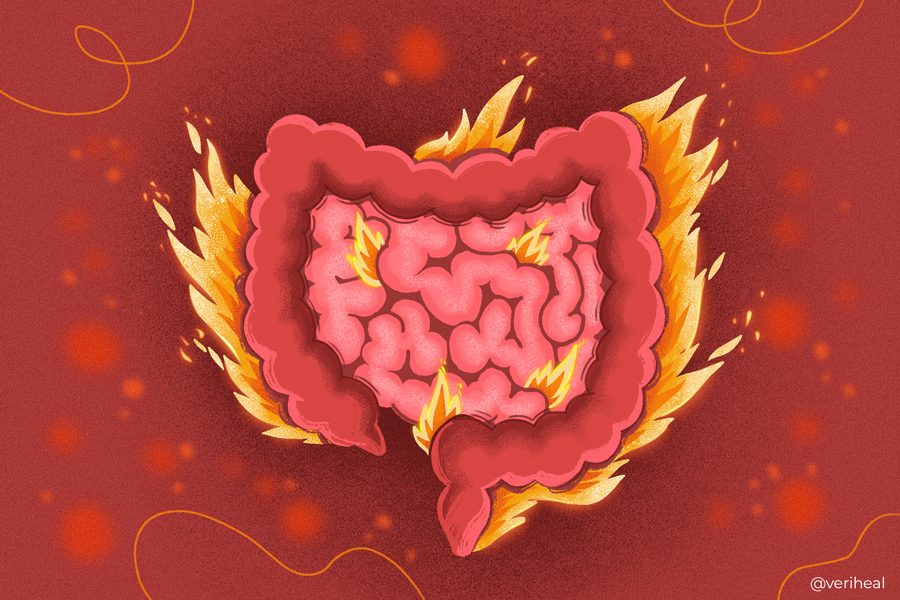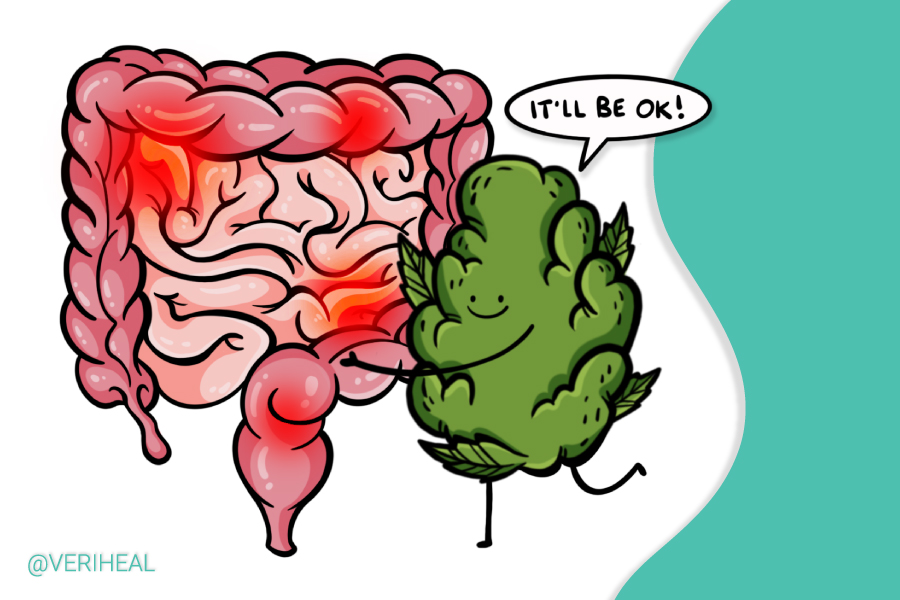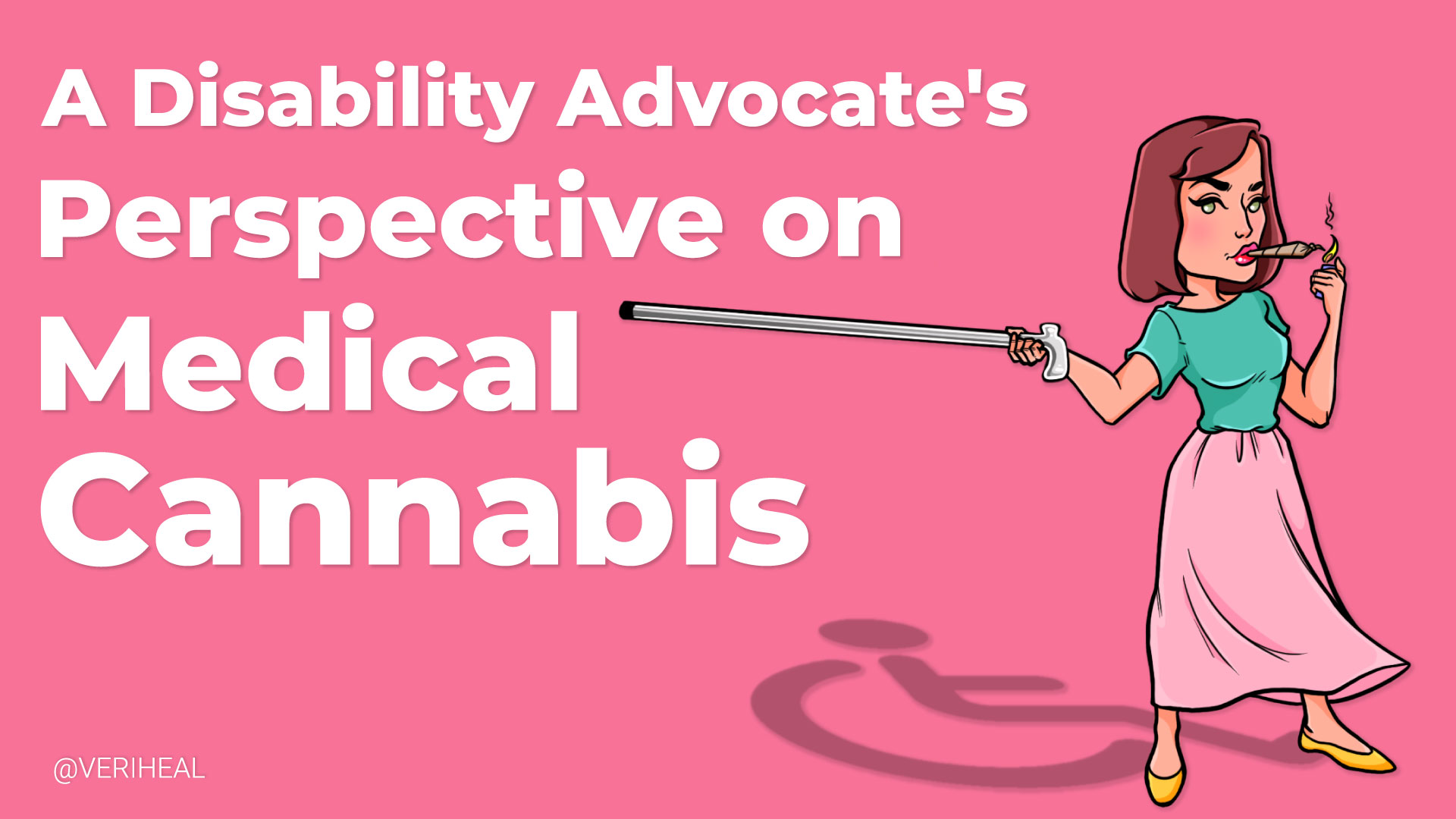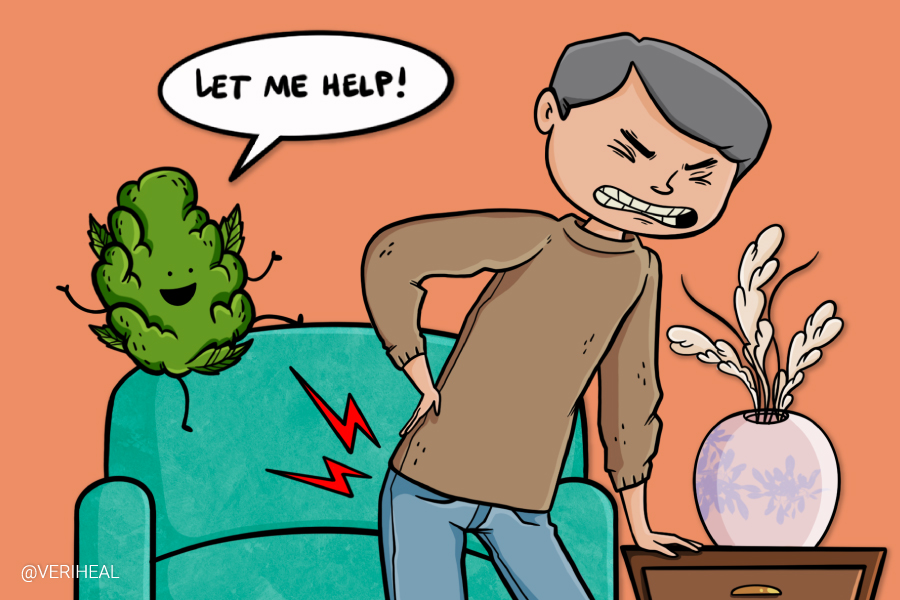Cannabis and Crohn’s Disease: Can It Help Reduce Symptoms?
- Using Cannabis for Crohn’s Disease: Considerations to Keep in Mind
- Why Use Cannabis to Help with Crohn’s Disease Symptoms?
- What Does the Science Say About Crohn’s Disease and Cannabis?
- A Patient’s Experience Using Medical Cannabis to Treat Crohn’s Disease
There have not been any large studies regarding Crohn’s disease and medical cannabis, surprisingly even from Israel, Europe, or the United States. Despite the lack of large studies available, the Crohn’s & Colitis Foundation cites smaller studies showing the benefits of the plant for Crohn’s for the relief of pain, nausea, and increasing appetite (5).
Crohn’s disease is a common form of inflammatory bowel disease (IBD). The general trend of patient-reported, symptomatic relief continues when looking at broader cannabinoid and IBD research. This research shows that more research is warranted on IBD and marijuana, with potential therapeutic uses in this population include modulating pain, controlling nausea, and slowing intestinal motility, or digestion (10).
At this time, there is insufficient clinical data to show any lab-measured mitigation of Crohn’s disease by cannabinoids, such as cannabidiol (CBD) or tetrahydrocannabinol (THC). Animal and human studies, however, continue to show promise and are still being investigated. Because there are no large-scale studies and the dosage sizes used in the small studies have widely varied, there is not sufficient data at this time to establish dosages of cannabis for those suffering from this condition (12). Read on to learn about why many Crohn’s patients choose to use medical marijuana to manage some of their symptoms.
Using Cannabis for Crohn’s Disease: Considerations to Keep in Mind
Patients who use cannabis for Crohn’s disease may see the following reported benefits (3) (9) (10):
- Improved pain management
- Improved quality of life
- Regained appetite
- Decreased anxiety and depression associated with the condition
- Increased appetite
- Reduced steroid needs
- Decreased diarrhea
The downside of using cannabis for Crohn’s disease include (10) (11):
- Risk of drug interactions with other medications – particularly anxiety and depression medications and alcohol
- Medical marijuana is not covered by many insurance companies
- Possible liver damage
- Taking too much at once can cause increased anxiety
- Common but mild side effects of cannabis: dry mouth, drowsiness, sleepiness, mood changes, feeling of being “high”, nausea, anxiety, and paranoia
An important note about smoking the cannabis plant is that patients occasionally mix it with tobacco. This is not advisable as the nicotine in tobacco can worsen Crohn’s symptoms, along with other negative health effects, according to the Canadian Society of Intestinal Research (6). Other options for consumption like cannabis oil and edibles are also available.
Why Use Cannabis to Help with Crohn’s Disease Symptoms?
Crohn’s disease is considered a type of IBD that most commonly affects the end of the small intestine and the beginning of the colon. Ulcerative colitis is the other type of IBD. The intestinal tissue becomes scarred and inflamed, causing severe abdominal pain, diarrhea, and a decrease in appetite. It can also affect other bodily tissues such as the eyes, skin and joints, and it can lead to the need for emergency intestinal surgery and hospitalization due to gut erosion, fistula formation, and other serious problems.
The condition has no cure, but many doctors/clinicians and patients are hopeful that cannabis can help control abdominal pain and reduce bathroom trips. It is also reported to help with nausea, diarrhea, appetite, and quality of life reduced by a patient’s social and daily living limitations with this disease.
One review study talks about the potential mechanisms involved in how cannabis can help relieve digestive inflammation and its anti-inflammatory properties through the activation of the endocannabinoid system, a fat-based system of self-made neurotransmitters. When CB2 receptors (cannabinoid receptors) that line intestinal tissue are activated, a transmitter called P-glycoprotein (P-gp) decreases the inflammatory response of white blood cells called neutrophils (1). This helps decrease inflammation by slowing the body’s process of attacking itself. This is also known as an autoimmune response.
What Does the Science Say About Crohn’s Disease and Cannabis?
Timna Naftali conducted the first cannabis study on Crohn’s disease and the plant. The 2011 study followed 30 patients with the condition and measured their disease severity before and after cannabis use. Naftali found that many users were able to decrease medications, including steroids for inflammation. Around 70% of study participants said they experienced a decrease in symptoms. In addition, participants experienced a decrease in daily bowel movements (8).
Crohn’s disease is a major type of IBD causing many disruptive and painful gastrointestinal symptoms, surgeries, and poor quality of life. A 2020 systematic review of many small cannabinoid and IBD studies shows patients reported improvement in symptoms such as abdominal pain, general well-being, nausea, diarrhea, and poor appetite (3).
However, there isn’t enough data yet to conclude any particular benefits, risks, or show clinical reduction of disease severity or remission of Crohn’s disease. Animal and lab studies have shown some promise in regards to gut anti-secretion, anti-motility, and anti-inflammatory effects of cannabinoids, but these effects remain to be proven in human colons (10).
A Patient’s Experience Using Medical Cannabis for Crohn’s Disease
Veriheal recently reached out to disability advocate Karolina Kristina about her medical use of cannabis for treating her Crohn’s disease symptoms. When being asked about why she started using medicinal marijuana, she stated that after being diagnosed with Crohn’s disease, she really struggled with nausea despite repeated attempts at using conventional drugs.
Many Crohn’s patients like Karolina seek medical marijuana for dealing with nausea that decreases their appetite. The potential to increase appetite through the use of marijuana can be life changing for IBD patients; it’s difficult to recover when you can’t keep your body fueled. If you’ve ever heard of the munchies, you know that marijuana has a reputation for making people hungry.
Unfortunately, as mentioned previously, there is not enough research to determine dosage for Crohn’s patients, so patients like Karolina often have to find out what works for them through trial and error to find a tool like cannabis that consistently reduces the recurring nausea and other symptoms of Crohn’s disease like gut inflammation. Always speak with a doctor/gastroenterologist before attempting to use medicinal marijuana for symptom relief for your medical condition.
Note: Veriheal does not intend to give this as professional medical advice. Do not attempt to self-diagnose, or prescribe medical treatment options based on the information provided on this page. Always consult a physician before making any decision on the treatment of a medical condition.
1. Almogi-Hazan, O., & Or, R. (2020). Cannabis, the endocannabinoid system And Immunity—the journey from the bedside to the bench and back. International Journal of Molecular Sciences, 21(12), 4448. https://www.mdpi.com/1422-0067/21/12/4448
2. Arun Swaminath, MD, Eric P Berlin, JD, Adam Cheifetz, MD, Ed Hoffenberg, MD, Jami Kinnucan, MD, Laura Wingate, Sarah Buchanan, Nada Zmeter, MD, David T Rubin, MD, The Role of Cannabis in the Management of Inflammatory Bowel Disease: A Review of Clinical, Scientific, and Regulatory Information: Commissioned by the Crohn’s and Colitis Foundation, Inflammatory Bowel Diseases, Volume 25, Issue 3, March 2019, Pages 427–435, https://doi.org/10.1093/ibd/izy319
3. Doeve, B. H., van de Meeberg, M. M., van Schaik, F., & Fidder, H. H. (2020). A Systematic Review With Meta-Analysis of the Efficacy of Cannabis and Cannabinoids for Inflammatory Bowel Disease: What Can We Learn From Randomized and Nonrandomized Studies?. Journal of clinical gastroenterology, 10.1097/MCG.0000000000001393. Advance online publication. https://pubmed.ncbi.nlm.nih.gov/32675631/
4. Karolina Kristina Interview [Zoom interview by Samantha Velez]. (2020, October 21).
5. Medical Cannabis. (2020). Retrieved October 23, 2020, from https://www.crohnscolitisfoundation.org/complementary-medicine/medical-cannabis
6. Medical Cannabis. (2020, August 12). Retrieved October 22, 2020, from https://badgut.org/information-centre/a-z-digestive-topics/cannabis/
7. Medical Cannabis Could Help Bowel Disease Patients. (2020, July 09). Retrieved October 22, 2020, from https://badgut.org/information-centre/a-z-digestive-topics/medical-marijuana-and-ibd
8. Naftali, T., Lev, L. B., Yablecovitch, D., Half, E., & Konikoff, F. M. (2011). Treatment of Crohn’s disease with cannabis: an observational study. The Israel Medical Association journal : IMAJ, 13(8), 455–458. https://pubmed.ncbi.nlm.nih.gov/21910367/
9. Naftali T. (2020). An overview of cannabis based treatment in Crohn’s disease. Expert review of gastroenterology & hepatology, 14(4), 253–257. https://doi.org/10.1080/17474124.2020.1740590
10. Perisetti, A., Rimu, A. H., Khan, S. A., Bansal, P., & Goyal, H. (2020). Role of cannabis in inflammatory bowel diseases. Annals of gastroenterology, 33(2), 134–144. https://www.ncbi.nlm.nih.gov/pmc/articles/PMC7049239/
11. Picardo, S., Kaplan, G. G., Sharkey, K. A., & Seow, C. H. (2019). Insights into the role of cannabis in the management of inflammatory bowel disease. Therapeutic advances in gastroenterology, 12, 1756284819870977. https://doi.org/10.1177/1756284819870977
12. Kafil, T. S., Nguyen, T. M., MacDonald, J. K., & Chande, N. (2018). Cannabis for the treatment of Crohn’s disease. Cochrane Database of Systematic Reviews, (11). https://www.ncbi.nlm.nih.gov/pmc/articles/PMC6517156/.
















